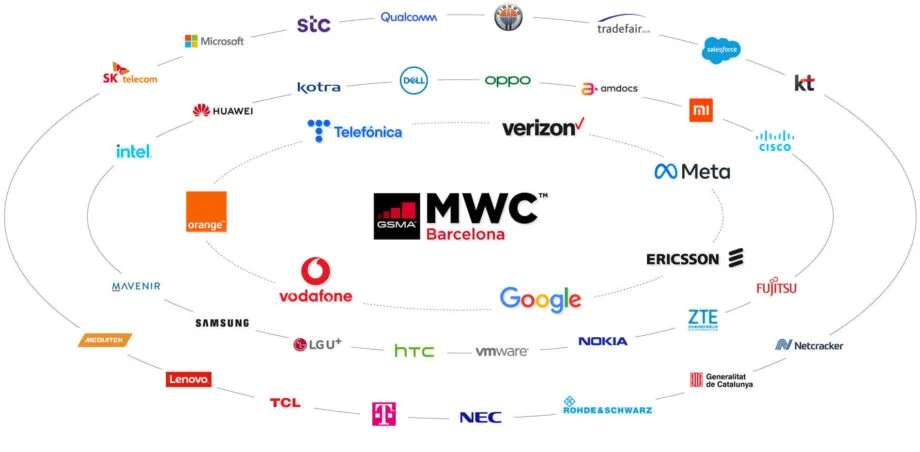In the ever-evolving landscape of mobile technology, one event stands out as the premier showcase for the latest developments and future trends: the Mobile World Congress (MWC). Held annually, MWC is the largest and most significant event in the mobile technology industry, bringing together companies, innovators, and thought leaders from around the globe. This TF article delves into what MWC is, its historical significance, and the groundbreaking announcements that have shaped the mobile world.
What is MWC?
The Mobile World Congress is an annual trade show organized by the GSMA (Global System for Mobile Communications Association), dedicated to the mobile communications industry. It serves as a platform for mobile operators, device manufacturers, technology providers, vendors, and content owners to showcase their latest products, services, and innovations.

MWC’s primary purpose is to foster collaboration, showcase innovation, and set the direction for the future of mobile technology. It’s a place where industry stakeholders can exchange ideas, form partnerships, and unveil new products and services that will drive the next wave of mobile advancements.
When and Where is MWC Held?
Traditionally, MWC is held in Barcelona, Spain, at the Fira Barcelona Gran Via, typically in late February or early March. The event spans four days — 26 to 29 Feb 2024 — offering an extensive program of conferences, workshops, networking opportunities, and an exhibition showcasing the latest mobile innovations.
Who Attends MWC and Why?
John Hoffman, CEO of GSMA Ltd., once remarked, “MWC is more than just an event. It is an ecosystem that brings together people, ideas, and technology to create a future that is more connected and collaborative.”

This sentiment is echoed by attendees and exhibitors who view MWC as a crucial hub for innovation and business opportunities in the mobile world. MWC attracts a diverse audience from the global mobile ecosystem, including:
- Mobile Operators and Network Providers: Looking for new technologies and partnerships to enhance their services.
- Device Manufacturers: Unveiling the latest smartphones, tablets, wearables, and other connected devices.
- Tech Companies: Showcasing new software, applications, and mobile solutions.
- Industry Analysts and Media: Covering the latest trends, announcements, and insights from key industry players.
- Policymakers and Regulators: Discussing policy, regulation, and the impact of mobile technology on society and the economy.
A Brief History of MWC and Its Importance
The first MWC was held in 1987 in London as the GSM World Congress before relocating to Cannes and finally settling in Barcelona in 2006. Over the years, it has grown from a small gathering of industry professionals to a global event attracting over 100,000 attendees from more than 200 countries.
MWC has played a pivotal role in the mobile industry’s growth, providing a platform for launching new technologies such as 3G, 4G, and 5G networks, smartphones, and mobile services that have transformed how we live, work, and communicate. Here’s a sample of momentous announcements from past MWCs:
- The Launch of 3G and 4G Networks: MWC was the stage for announcing the rollout of 3G and 4G LTE networks, heralding new eras of mobile connectivity and internet speeds.
- The Rise of Smartphones: Many iconic smartphones, including early Android devices and industry-changing models like the Samsung Galaxy series, were unveiled at MWC, shaping the smartphone market’s trajectory.
- Wearable Technology: MWC has seen the introduction of various wearable technologies, highlighting the industry’s move towards personal and health-related mobile devices.
- 5G and Beyond: Recent MWC events have focused on the deployment of 5G networks and the exploration of 6G, emphasizing the future of ultra-fast, reliable connectivity.
t/f Summary: Looking to the Future
As we anticipate the next MWC, it’s clear that the event will continue to be a catalyst for mobile innovation. From advancements in AI and IoT to the exploration of virtual and augmented reality, MWC remains at the forefront of defining the future of mobile technology.
The Mobile World Congress is not just an event; it’s the heartbeat of the mobile industry. It reflects the current state of mobile technology and offers a glimpse into the future, driving innovation, collaboration, and growth across the global mobile ecosystem. As technology evolves, MWC will undoubtedly remain the stage where the next chapters of the mobile revolution unfold.


